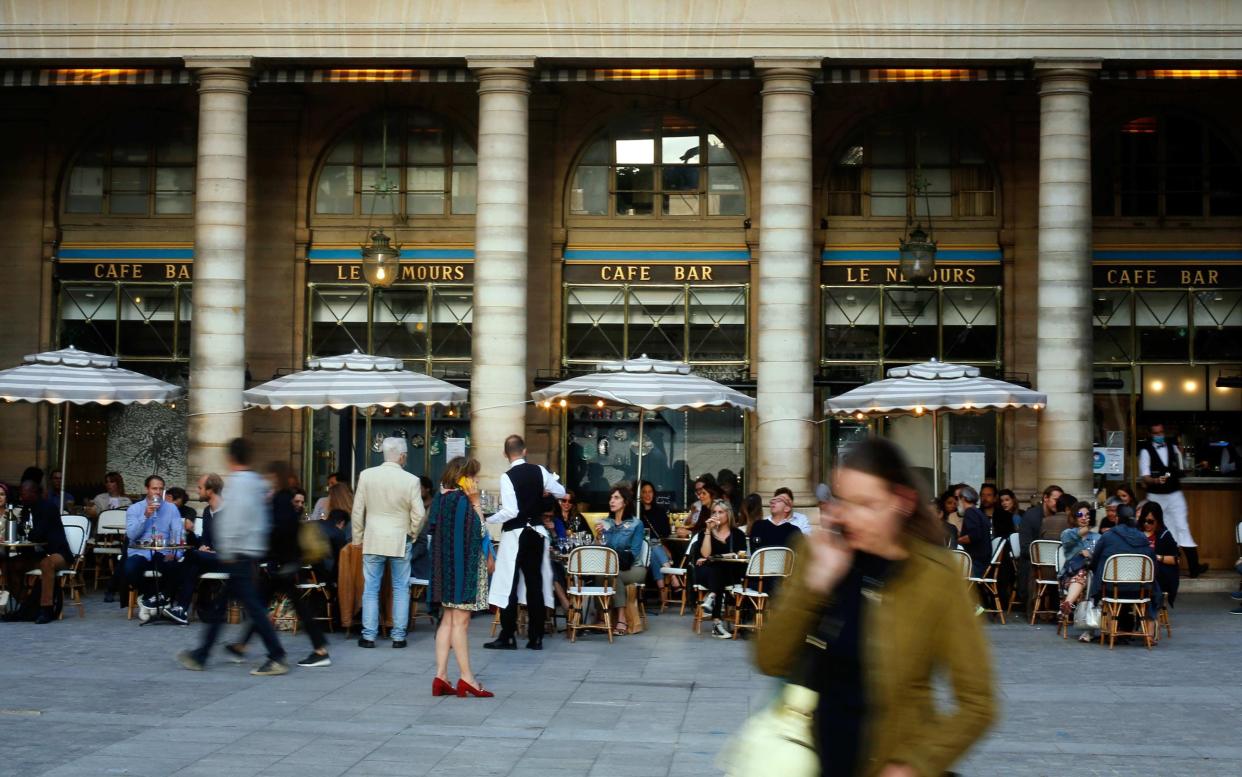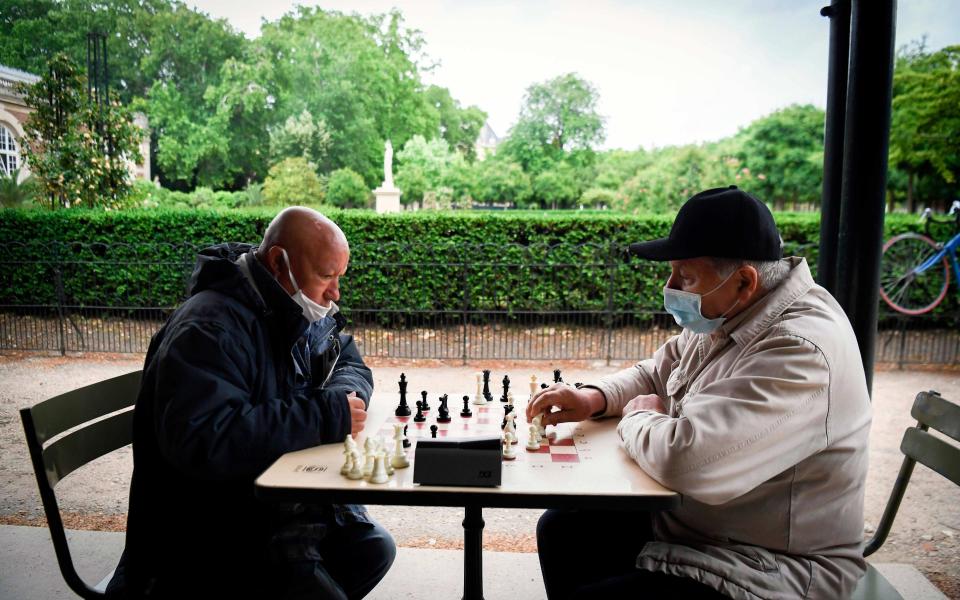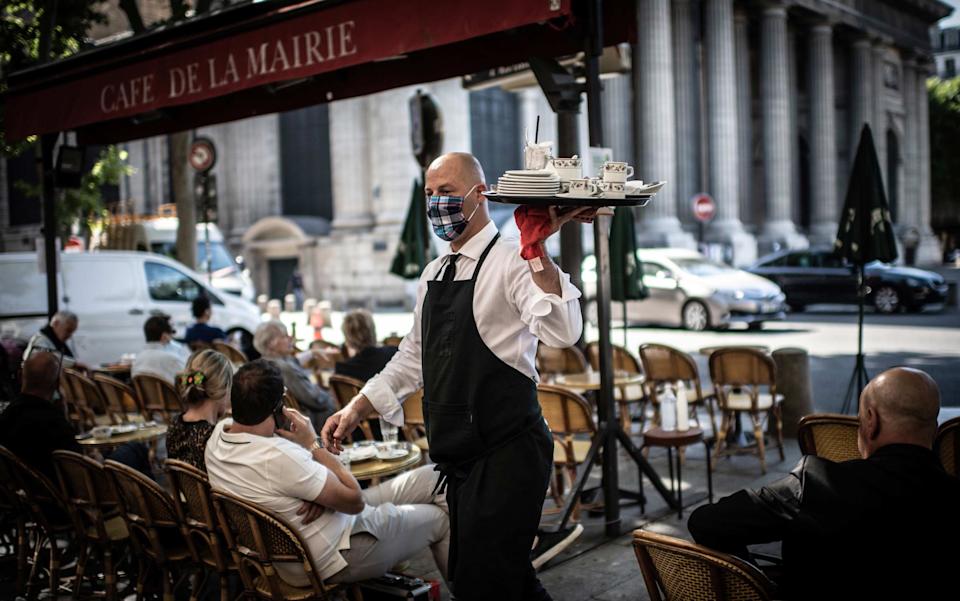Paris is always a good idea, but will the City of Love ever be the same again?

On Sunday evening, Parisians gathered in front of their televisions to watch President Macron announce that the French capital was joining the rest of the country in turning “green”, the lowest coronavirus threat level, a week ahead of schedule.
City residents rejoiced they can now dine inside of restaurants.
For the last fortnight leisure-thirsty Parisians have had to make do with cafe-terraces while the rest of the country, deemed safer, has enjoyed a return to dining rooms. Still, locals have been more than happy to fill al-fresco seating, to sip rose and put the world to rights under the auspices of busy masked waiters.
Now the locals have greater freedom to enjoy this sliver of time when their dense little capital is open only to them before the tourists return.
As the spectre of the return of overseas visitors grows greater - France eased its border restrictions this week (but not to Britons) - residents wonder what tourism will look like for the City of Love in a post-pandemic age. Do Parisians even want tourists back?

Caroline Leboucher, chief executive of Atout France, the French organisation responsible for promoting France as a tourism destination, says the tragedies of 2015 - the attack on the Charlie Hebdo offices and then, in November, the Bataclan nightclub - gave Paris unwanted experience in bouncing back.
“We’ve learned our lesson in terms of crisis management and action to be taken,” she said. “The first thing is to regain trust, and that means measures and training people, making sure all the protocols are implemented as they should be.”
Many of Paris’s smaller museums and galleries have already reopened, with hygiene protocols in place; other big-hitters, such as the Louvre and the Pompidou, will follow in July. After an initial shortage of masks, the city now has ample supply, with both washable versions and bulk packs of surgical masks available in supermarkets. Every shop or restaurant entrance now features a hand sanitizer dispenser (sometimes decorated in true Parisian style), while the city has also installed hand gel dispensers across metro stations and bus stops.
Social distancing remains in place around the city, including at the Eiffel Tower, which will reopen next week for the first time since the beginning of the pandemic; visitors will only be able to use the stairs until July.
Like many destinations around the world, Leboucher believes tourism in Paris may not look the same as visitors begin to return. Montmartre, for example, the hilltop village that normally bustles with tourists, has been unrecognisable in recent weeks without the usual swathes of visitors following red-flag-carrying guides and snapping selfies in front of the Sacré Coeur.
Leboucher believes that, for now at least, there will not be a return to this kind of mass tourism. “I don’t think we will see big groups for quite a long time,” she said. “With the sanitary protocols imposed by other countries and by France, everything should be limited to very small groups.”
More broadly, Leboucher suggests that the kind of hop-on, hop-off tick-list tourism – “where people just quickly go to see Mona Lisa, the Eiffel Tower and Montmartre” – is “probably over”.
“[Visitors] want to live something, they want to live like the inhabitants,” she said. “Because we have this globalisation where you can find the same shops, the same dresses, the same shoes, everywhere in the world, when you travel you definitely want to see something else.”

This line between local and tourist has blurred in Paris in recent years thanks, in part, to short-term rental providers such as Airbnb offering a different way to experience the city. The reception from the city’s mayor, the well-established hotel business and sometimes locals has not always been positive, and in recent years City Hall has clamped down on short-term rental platforms, imposing new regulation and scrutiny. But it shows how visitor needs in the city have evolved.
Hotels have responded accordingly by adapting their offering to provide more local flavour and a more homely environment.
French Theory, a boutique hotel that opened on the Left Bank late in 2019, has been operational again since early June. The hotel frames itself as not only a place to stay, but a cultural meeting place – and it features a coffee shop, “concept store” and even an in-house recording studio. Manager Aurélien Armagnac is optimistic about the future of his young hotel precisely because of its “authenticity”.
“Of course business will slow for a while, but because we have a new and different product, I am very optimistic,” he said. “If we didn’t have this clear positioning, I would be more worried. The hotel offer is the same but the demand will be lower; hotels will have to reinvent the way they work.”
And as for our beloved Parisians, will they want tourists back?
Caroline Leboucher concedes there is some reconciliation work to be done, both domestically between Parisians who fled the capital for lockdown and the locals in rural communities round France where they camped out, and between Parisian locals and visiting tourists.

“A more sticky issue is the acceptability of tourism and the relationship between locals and visitors,” she said. “That was an issue before, especially in Montmartre, and I think that it will be an issue after. The relationship between locals and visitors is to be tackled really. People want more authenticity - I think we should work on how we can create more contact, more opportunities for visitors and inhabitants to have some common activities.”
In general, she predicts a push towards a more sustainable, environmentally-respectful kind of travel, encouraged by participative projects and local partnerships.
Paris mayor Anne Hidalgo, who faces a delayed second round of elections at the end of this month, has been met with a mix of praise and criticism for her ongoing plans to make the capital more pedestrian- and cycle-friendly. In the wake of Covid, she has accelerated plans to create cycle paths, with 50km of new paths added this summer. In Paris, bike shops across the city are sold out as locals look for new transport options, and visitors will be encouraged to follow suit using the city’s popular Vélib bike rental scheme, which predated London’s ‘Boris bikes’.
Leboucher feels, above all, optimistic for the future of tourism in Paris. “Paris is a resilient city and its inhabitants as well,” she says. “It’s really the City of Love, the City of Dreams’ I think that people will keep dreaming.”
On Montmartre on Tuesday morning, Place du Tertre, the mainstay of portrait and caricaturists, which was eerily empty throughout the two-month lockdown, was beginning to see a tentative return of artists. “It’s [been] a pain, it’s annoying, it’s sad,” said one.
“But it’s unavoidable, the tourists will come back.
“Until then, if I were Parisian I would get my portrait done now – the prices have never been lower.”

